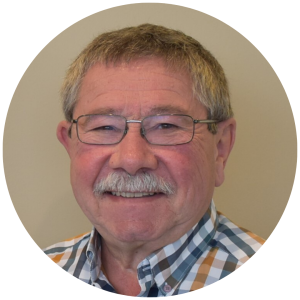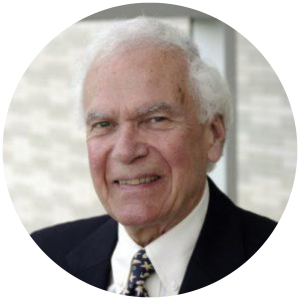Premier Sponsors



Major Sponsors













Keynote Speakers
R.M. Hardy Keynote Address by Dr. Dennis E. Becker
Practical Aspects of Geotechnical Risk Management and Lessons Learned
Effective management of geotechnical risk is a requirement for successful geotechnical engineering design and construction. The presentation provides an overview of geotechnical risk management approaches that are available in state-of-practice, including observational approach, failure modes and effects analysis (FMEA), risk assessments, and reliability and probabilistic methods that are inherently linked to reliability based design (RBD) methods such as Load and Resistance Factor Design (LRFD). All these approaches provide necessary input into risk-informed decision making. The presentation will interrogate the advantages and limitations of these approaches, and how they can be appropriately used in practice. A thorough understanding of credible failure modes and how they develop in structures such as dams, embankments and foundations is a requisite of effective geotechnical risk management towards satisfying project objectives and needs. The important roles of site characterization, rationale design basis, analysis and design are also briefly examined. Implementation challenges being faced by geotechnical practitioners and lessons learned from projects are identified and discussed.
Dennis E. Becker, Ph.D., FEIC, FCAE, P.Eng. is a Principal and Senior Geotechnical Engineer in Golder with 40 years of national and international experience on numerous large scale civil engineering and resource development projects. Dennis is active in many key engineering and professional societies, and maintains close liaison with universities. He serves on technical committees of the Canadian Standards Association (CSA), National Building Code of Canada, Canadian Highway Bridge Design Code and CSA Offshore Code (Foundations), extensively involved with the development and implementation of limit states design (LRFD) for foundations, and was Co-Editor of the 4th Edition of the Canadian Foundation Engineering Manual. He is also involved in the ASCE Geo-Institute’s initiative to produce Guidance Document on Risk Informed Decisions in Geotechnical Engineering. Dennis has received senior awards from the Canadian Geotechnical Society, Engineering Institute of Canada and Canadian Society of Civil Engineers, and is a Fellow of the Canadian Academy of Engineering and Engineering Institute of Canada. Dennis was President of the Canadian Geotechnical Society, Vice-President (North America) of the International Society for Soil Mechanics and Geotechnical Engineering (ISSMGE) and Editor of the Canadian Geotechnical Journal.

Dennis E. Becker, Ph.D., P.Eng., FEIC, FCAE
Golder
CGS Colloquium 2020 by Dr. Ariane Locat
Understanding spreads in Canadian sensitive clays
Spreads are one type of large landslides occurring in Canadian sensitive clays. They are characterized by the rapid lateral spreading of a series of coherent clay blocks, having horst and graben shapes, moving on an almost horizontal layer of remoulded clay. Spreads cover large areas (> 1 ha), develop rapidly with no warning signs, and conventional stability analysis do not apply, as they give too large factor of safety when back calculating entire spread. This leaves geotechnical engineers without tools in order to evaluate the risk regarding spreads. For the past decades, Université Laval, Ministère des transports du Québec and Ministère de la sécurité publique du Québec have worked together in order to answer the following question: what are the geotechnical and morphological parameters controlling initiation, propagation and extent of spreads in sensitive clays? This presentation portrays the latest advancement of the research program put in place with the goal to answer this question by integrating detailed field investigation, advanced laboratory testing and analysis and numerical modeling. It therefore presents the state of the art of our understanding of spreads in Canadian sensitive clays, focusing on three aspects: (i) synthesis of spreads in Eastern Canada, (ii) laboratory shear strength characterisation of sensitive clays, and (iii) application of progressive failure to spreads. Although it focuses on sensitive clays, the work presented has important applications to other materials presenting a strain-softening behaviour, such as rock, soft rocks, and snow, for example.
Ariane Locat obtained her Ph.D. in Civil engineering under the supervision of Prof. Serge Leroueil, at the Department of civil and water engineering at Université Laval, and the co-supervision of Dr. Hans Petter Jostad, from the Norwegian Geotechnical Institute. As of 2012, she works as a professor at the Department of civil and water engineering at Université Laval in Québec. Her research mainly focuses on geotechnical characterization of landslides, understanding mechanical behaviour of sensitive clay and numerical modeling of stresses and deformations during failure of clay slopes.

Ariane Locat, ing. Ph.D.
Université Laval
Special Presentation by Dr. Norbert Morgenstern
CGS Heritage Session
The presentation will reflect on Learnings from Success and Learnings from Failure over the past fifty years. Dr. Morgenstern’s contributions to geotechnique in Canada and worldwide will be highlighted in introductions by some distinguished Canadian professionals.
Norbert Morgenstern, Ph.D., P.Eng., FEIC, FCAE is a Distinguished University Professor Emeritus at the University of Alberta. He is an internationally recognized authority in the field of geotechnical engineering and a highly sought-after consultant. He has helped agencies and owners all over the world with the design of dams subjected to difficult conditions and with the evaluation and remediation of landslides. He has served on numerous technical committees throughout the world, including chairing the panels conducting the review into the causes of failure for the Mount Polley tailings dam in BC in 2014, and the Fundão Tailings Dam in Brazil in 2015. He has received some of the highest honours in our field, including the Rankine Lecture (1981) from the British Geotechnical Society, the Terzaghi Lecture (1992) and the Seed medal (2011), both from the American Society of Civil Engineers, and the Legget Award (now Medal), the Canadian Geotechnical Society’s most prestigious honour. He has been inducted into the Alberta Order of Excellence and the Order of Canada for his outstanding achievements in and life-long contributions to geotechnical engineering. He has received honorary degrees from the University of Toronto, Queen’s University and the University of Alberta, and is an Honorary Professor at Zhejiang University, PRC. Dr. Morgenstern is a past president of the Canadian Geotechnical Society (CGS) and of the International Society for Soil Mechanics and Geotechnical Engineering.


